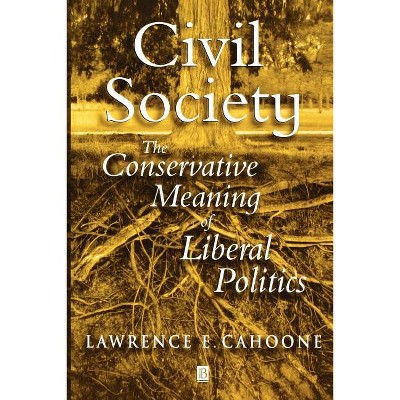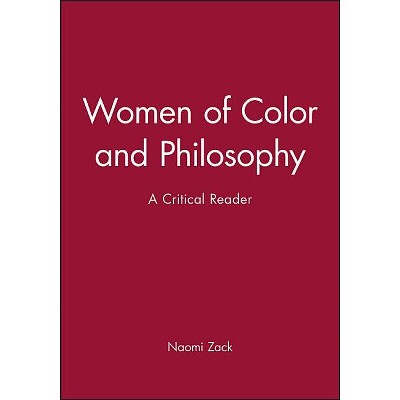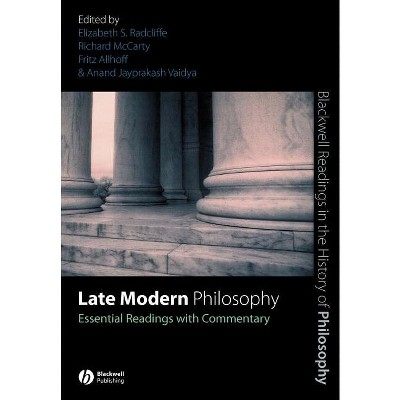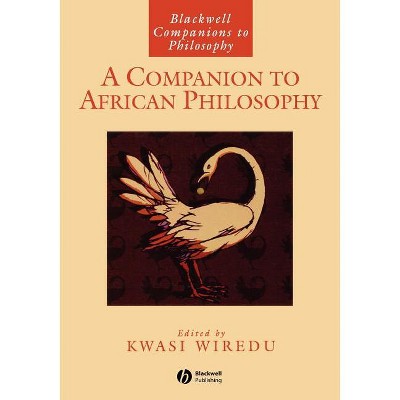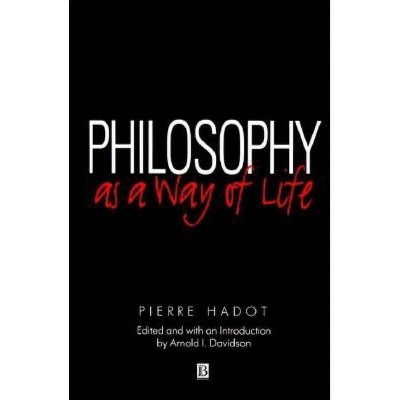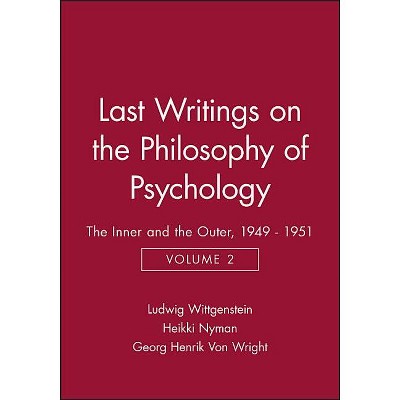Sponsored

The Ends of Philosophy - by Lawrence E Cahoone (Paperback)
In Stock
Sponsored
About this item
Highlights
- This book engages the confrontation between the foundationalist aims of traditional philosophy, the postmodern critique, and the pragmatic attempt to maintain a form of non-foundational inquiry.
- About the Author: Lawrence E. Cahoone is Associate Professor of Philosophy at the College of the Holy Cross.
- 448 Pages
- Philosophy, History & Surveys
Description
About the Book
This book engages the confrontation between the foundationalist aims of traditional philosophy, the postmodern critique, and the pragmatic attempt to maintain nonfoundational inquiry. Through readings of the work of Nietzsche, Wittgenstein, Derrida, and others, the author examines the nature and scope of philosophical knowledge. (Philosophy)JBook Synopsis
This book engages the confrontation between the foundationalist aims of traditional philosophy, the postmodern critique, and the pragmatic attempt to maintain a form of non-foundational inquiry. Through readings of the work of Peirde, Nietzsche, Wittgenstein, Buchler, Derrida, Rorty, and others, the author examines the nature and scope of philosophically relevant knowledge.
- Ambitious and important work, by a respected philosopher.
- Presents a clear and thoughtful analysis of key philosophical traditions.
- Examines the nature and scope of philosophically relevant knowledge.
From the Back Cover
This book engages the confrontation between the foundationalist aims of traditional philosophy, the postmodern critique, and the pragmatic attempt to maintain a form of non-foundational inquiry. Through readings of the work of Peirce, Nietzsche, Wittgenstein, Buchler, Derrida, Rorty, and others, the author examines the nature and scope of philosophical knowledge.Review Quotes
"The Ends of Philosophy has an ambitious project, an engaging philosophical seriousness, wonderful metaphilosophical remarks, and terrific historical chapters. The chapter on Peirce's philosophy is, perhaps, the very best discussion I have seen. This is not to say I agreed with all of it - I did not agree with the criticism of me! - but I was impressed by all of it, including the unexpectedly poignant and modest conclusion." Hilary Putnam, Harvard University
"Cahoone is acutely aware of the problem of self-referentiality in philosophy. The problem especially plagues relativism because, if truth is relative to an inquirer or to a context, then so is the claim that this is so. Cahoone shows that all forms of anti-realism must affirm some form of relativism, even naturalism and pragmatism. This argument is often put forward more for its display of logical acumen than as a serious way to probe the strengths and limitations of a position. Cahoone has the latter purpose. He develops his arguments judiciously, and is so successful in making his point that he can turn this critique upon himself with a positive result. This is one of the notable accomplishments of the book." George Allan, Dickinson College
About the Author
Lawrence E. Cahoone is Associate Professor of Philosophy at the College of the Holy Cross. He is author of The Dilemma of Modernity (1989) and Civil Society: The Conservative Meaning of Liberal Politics (Blackwell 2002), and editor of From Modernism to Postmodernism (Second edition, Blackwell 2002).
Shipping details
Return details
Trending Philosophy


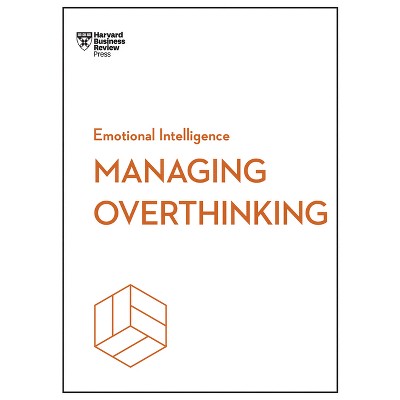



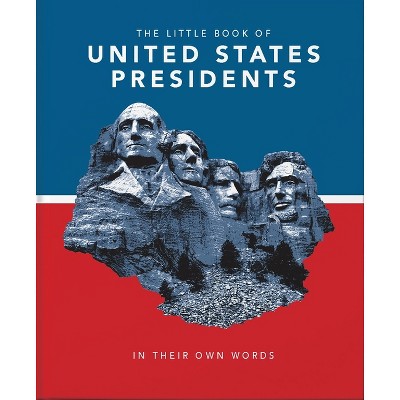
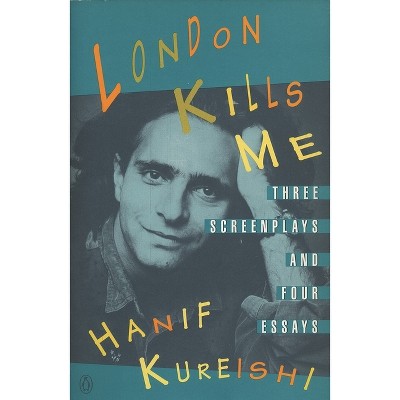



![Zen and the Art of Motorcycle Maintenance [50th Anniversary Edition] - by Robert M Pirsig (Paperback)](https://target.scene7.com/is/image/Target/GUEST_a091177a-e446-4862-8fd2-fbddb3522083)
